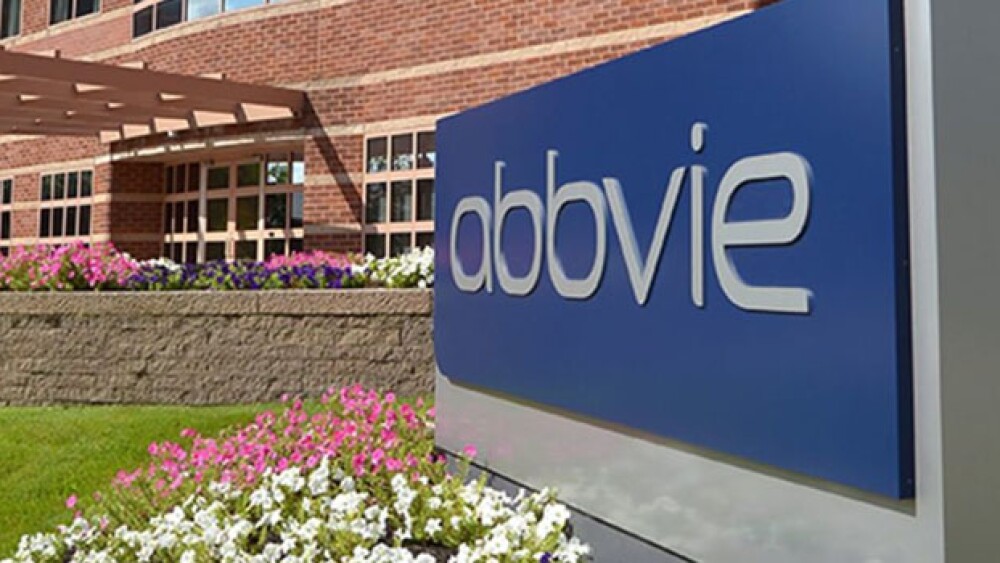Humira generates about 60% of AbbVie’s annual revenue but is expected to lose patent protection in 2023.
Even though AbbVie’s Humira remains the top-selling prescription drug in the world, it will soon lose its hold on that spot as patents expire in 2023 and biosimilar drugs begin to chip away at its $20 billion annual revenue.
With the impending loss of its cash-cow, it’s no wonder that AbbVie ponied up $63 billion to acquire Botox-maker Allergan as part of a “transformational” strategy for growth. AbbVie investors initially reacted poorly to the announcement by selling off shares and causing the stock to fall about 16%. However, on Wednesday morning there was a slight uptick in share price as investors are picking up shares of the company at a reduced price. Part of that rebound could be attributed to some analysts’ reports that predict the acquisition could lead to significant growth for AbbVie, something the company itself predicted when announcing the deal Tuesday morning.
Maura Musciacco, senior director of neurology & ophthalmology at GlobalData, said it was not surprising to see AbbVie turn to mergers and acquisitions to bolster its future position in the pharma industry, particularly as Humira faces the impending patent cliff. Because Humira provides about 60% of AbbVie’s total revenue, Musciacco said M&A will be able to provide the company with “a rapid source of new revenue streams to secure long-term growth.”
What may have been unexpected, Musciacco said, is that AbbVie went after a whale instead of smaller companies to bolster its pipeline. Musciacco said the AbbVie turned to a “rather diversified company,” which means the deal will transform AbbVie’s portfolio.
Importantly, the deal will also lower its reliance on Humira, meaning that just 41% of the combined company’s sales would be generated by this drug, Musciacco said.
“Allergan has a broad offering: roughly 50% of its sales are generated by neurology drugs. That said, it also has drugs for ophthalmology, gastrointestinal, women’s health, and cardiovascular indications, just to name a few. Its sole blockbuster brand is Botox, which—similarly to Humira—has been approved in multiple indications. Notably, Allergan also has several promising pipeline assets that will contribute to future sales growth; for example, ubrogepant and atogepant are two oral calcitonin gene-related peptide receptor antagonists in late-stage development for the lucrative migraine market,” Musciacco said.
In a brief note following the announcement of the deal, Leerink upgraded AbbVie to “outperform” from “market perform.” According to a report in Barron’s, analyst Geoffrey Porges said the decision was based on AbbVie’s new dividend yield of 6.5%. The “sustainability and likely growth of that dividend through 2023” along with the “high probability” that AbbVie will be able to “extract even more synergies from Allergan” than was first suspected caused Leerink to shift its thinking.
Musciacco did note that there may be some divestment of portfolio products before the transaction is completed in order for a “leaner product offering.” That has certainly been true of the other massive deal announced this year, Bristol-Myers Squibb’s acquisition of Celgene.
As analysts have been dissecting the AbbVie/ Allergan deal, there has been general consensus that the move was a good one for Allergan, which has been struggling for several years. Many analysts and investors have been calling for a radical change for Allergan for several years, including a breakup and leadership changes. RBC Capital Markets analyst Randall Stanicky, who has been critical of Allergan, told CNBC that the deal is a “nice exit from a tough situation” for the Ireland-based company.
“I think investors should be happy with this exit,” Stanicky told CNBC.
Jefferies health-care analyst Jared Holz told CNBC that the deal will likely be a good solution for both companies as they each seek to shore up their futures. Holz said AbbVie’s 16% drop on Tuesday was a “bit overdone.” Holz said the deal solves a growth problem for each company. Shares of Allergan continue to climb today. The stock is trading at $164.55 as of 11:04 a.m.
“I feel like I’m the only person in the world who feels this deal isn’t a disaster,” he told CNBC. “It is a home run for Allergan shareholders.”





